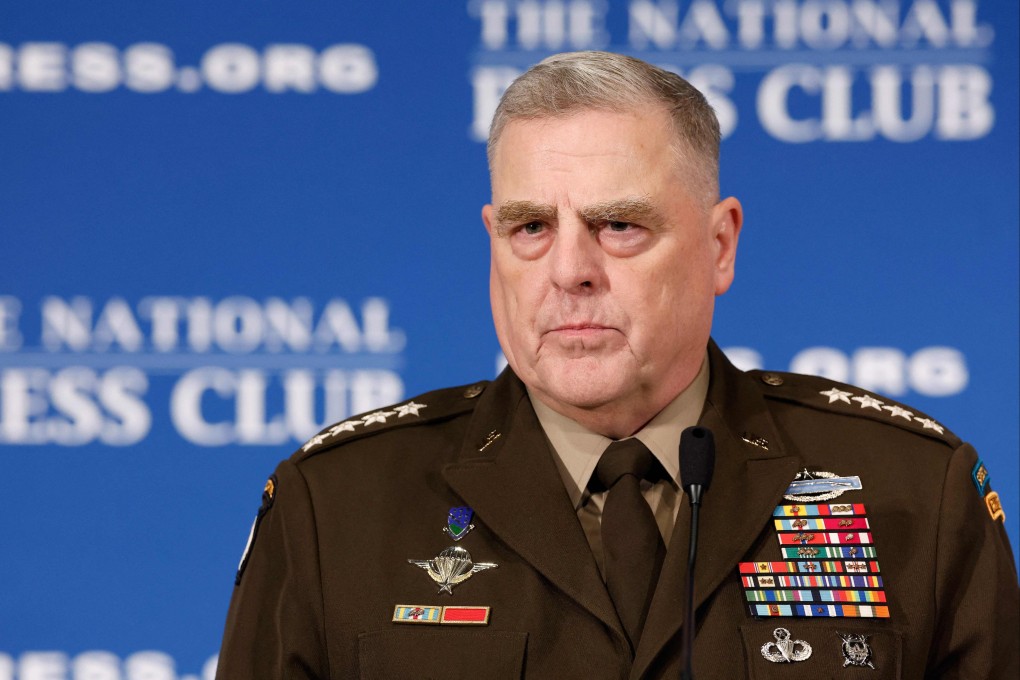Advertisement
Xi Jinping has yet to decide whether to order Taiwan unification by 2027: top US military adviser
- Chinese leader wants PLA to develop capability by then and Pentagon must modernise to deter him, says Joint Chiefs of Staff chairman
- General Mark Milley believes optimised use of AI and quantum computing can help US ‘maintain our current decisive advantage’
Reading Time:2 minutes
Why you can trust SCMP
99+

Robert Delaneyin Washington
Chinese President Xi Jinping has yet to decide whether to order a military unification with Taiwan by 2027, according to the US government’s top military adviser, who called for an accelerated modernisation of America’s armed forces to prevent such a move.
Speaking at a National Press Club event in Washington on Friday, US Joint Chiefs of Staff Chairman General Mark Milley sought to clarify an oft-repeated US government assessment of Beijing’s intentions towards the self-ruled island.
Xi “has stated publicly that he has challenged the People’s Liberation Army to develop the military capability to unify Taiwan with China by 2027. So he didn’t say, ‘I’ve decided to attack and invade’”, Milley explained.
Advertisement
“He said, you generals, you develop the capability to do that; we’ll make the decision later. There’s a very subtle distinction there,” Milley added.
“The decision-making process will still have to occur, and that’s what I’m getting at with the idea of deterrence.”
Advertisement
Advertisement
Select Voice
Select Speed
1.00x